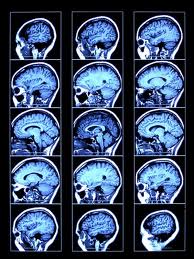Referer Information
Why refer a patient to a neuropsychological service?
Referring a patient to a neuropsychological service has a number of advantages.
Neuropsychological assessment can:
- Determine the presence of a brain injury and the consequences of the injury on the individual’s life
- Assist with the diagnoses of various neurological and neurodegenerative conditions
- Determine decision-making capacity, testamentary capacity, or need for guardianship
- Identify cognitive strengths and weaknesses (e.g. for vocational or rehabilitation purposes)
- Help monitor cognitive changes over time (e.g. following an accident or elected-neurosurgery)


What type of patients are eligible for neuropsychological assessment?
Neuropsychological assessment are helpful for patients with brain injury (or suspected brain injury) and cognitive concerns. This includes individuals with:
- Neurodegenerative conditions (such as Alzheimer’s disease and Parkinson’s disease)
- Traumatic Brain Injury (such as following motor vehicle accidents, falls and assault)
- Neurological conditions (such as Stroke, tumours, epilepsy and arteriovenous malformations)
- Inflammatory diseases implicating the central nervous system (such as Multiple Sclerosis)
- Psychiatric illnesses (such as schizophrenia, depression and anxiety)
- Developmental disorders (such as ADHD and learning disorders)
- Intellectual disabilities (such as Down syndrome)
- Brain injury following hypoxia and long-term alcohol abuse
Preparing for an assessment
Assessment duration
A neuropsychological assessment will usually last a full morning or afternoon. You should let your client know of this in advance. If your client is coming from some distance, it is advisable that they arrive in good time, refreshed and not fatigued from lengthy travel. There will be time for your client to have short breaks for refreshments. A canteen is located on level 4 of the clinic. Your client may wish to bring some cash to purchase refreshments.
St Vincent’s is a non-smoking environment. Those wishing to smoke will be directed to the designated smoking area outside the hospital building.
What happens in a Neuropsychological Assessment?
A brochure will be sent to your client for information.
Medication information
Your client may wish to bring any medication that must be taken regularly (for example, diabetic medication, pain killers, drugs for Parkinson’s disease). Please advice me if your client is taking any opiate-based pain medication, or other strong medication likely to impair concentration or attention.
Interpreters
Should your client need the service of an interpreter, this will need to be arranged by your office in advance. Telephone-based interpreting services are not sufficient for the purpose of a neuropsychological assessment. The interpreter should be booked for a minimum of four hours to avoid the need to re-schedule and incur further fees. It is not practice to use family or friends in place of professional interpreters.
If your client is of non-English speaking background please ensure their English is sufficient for the purpose of an assessment. As a guide, they should be able to converse in English without difficulty, and do so regularly, for example, for employment purposes. If you are unsure whether your client needs an interpreter, please contact the office in advance to discuss.
Family/Friends
It is helpful if a family member or friend accompanies your client to the appointment so that they can provide further details and information about their condition. If there is no one available on the day, and with your client’s permission, a nominated person can be contacted by phone.
No Show / Late Cancellations
This practice is in demand. To ensure appointments can be reserved for your client pre-payment is required. Failure to attend or late cancellations will incur a fee.
Identification
Please ask your client to bring along photo identification such as a driving licence or passport. Alternatively a photograph will be taken of your client for identification purposes.
Mobile Phones
In order not to interfere with testing, your client will be asked to turn mobile or electronic devices off, or to silent mode.

